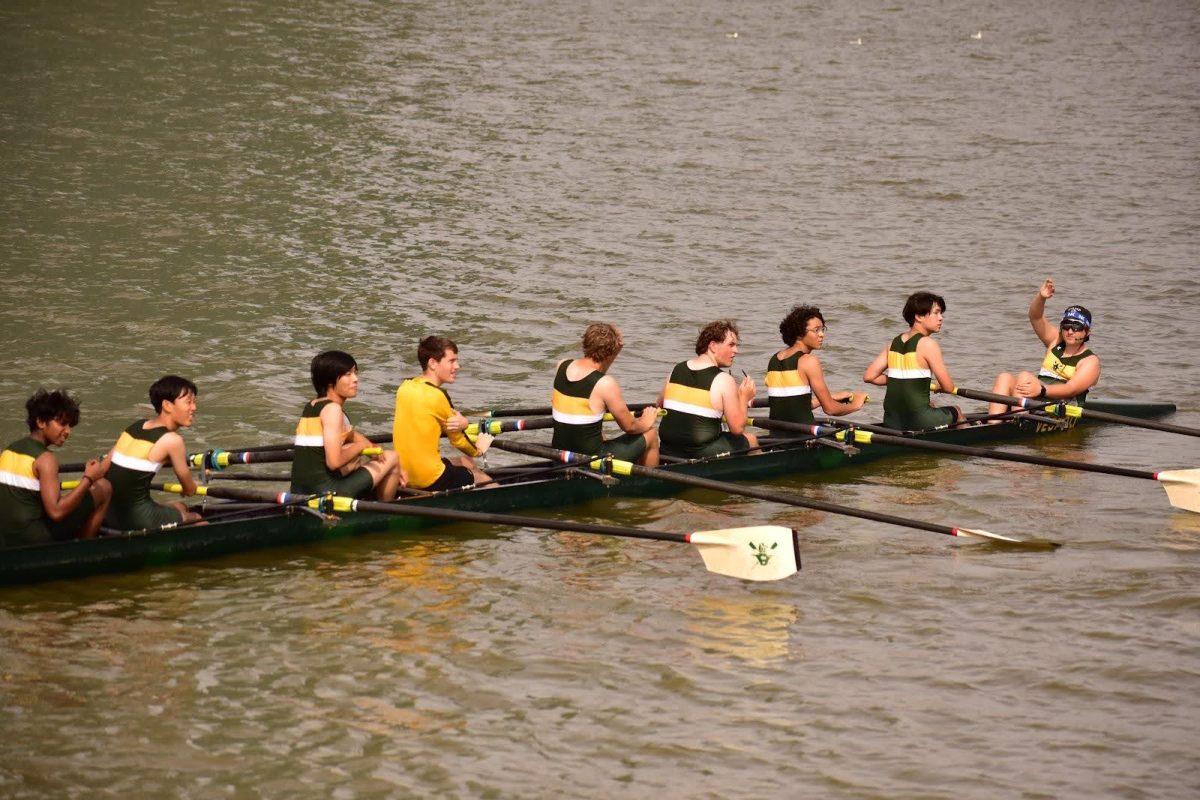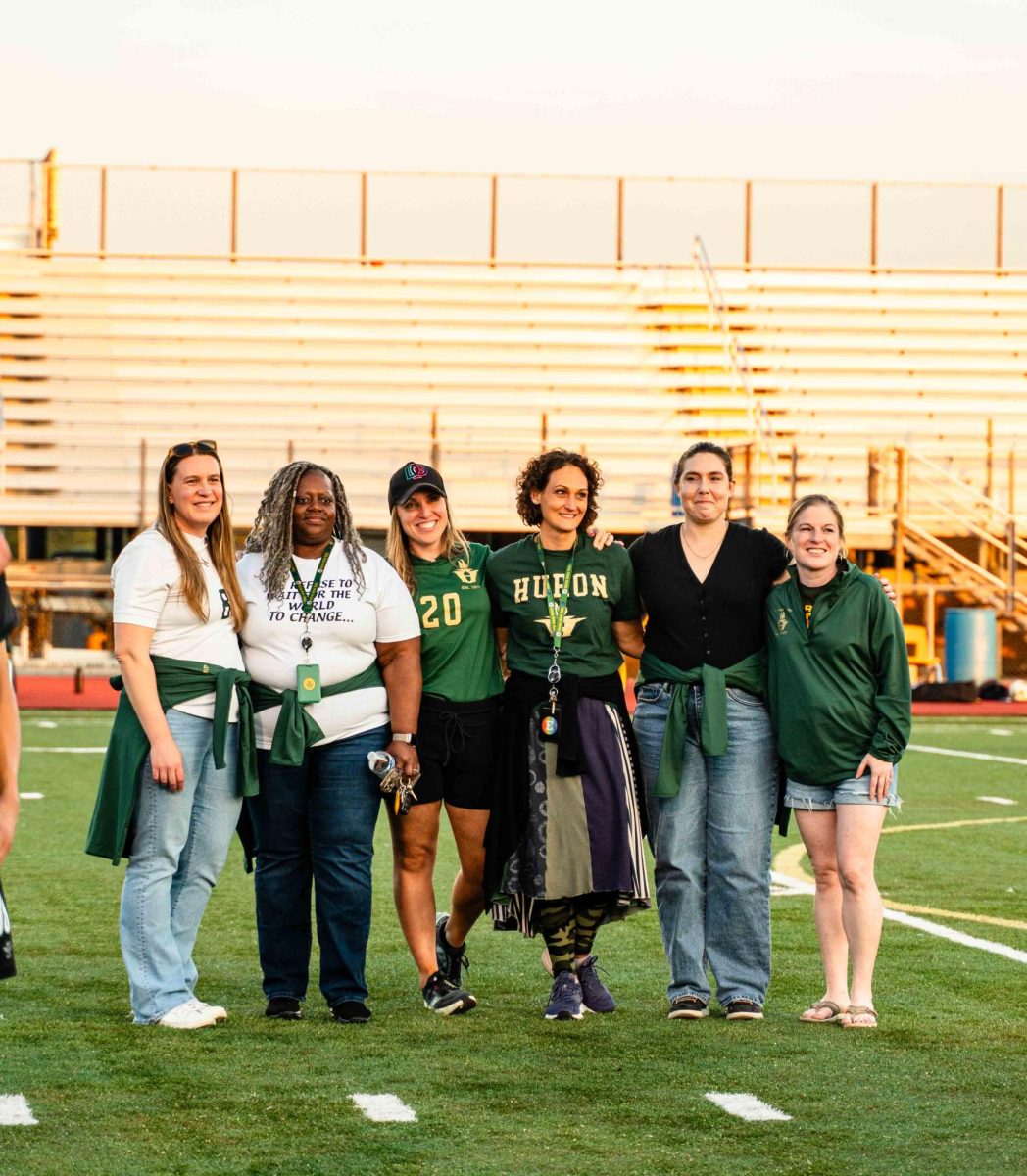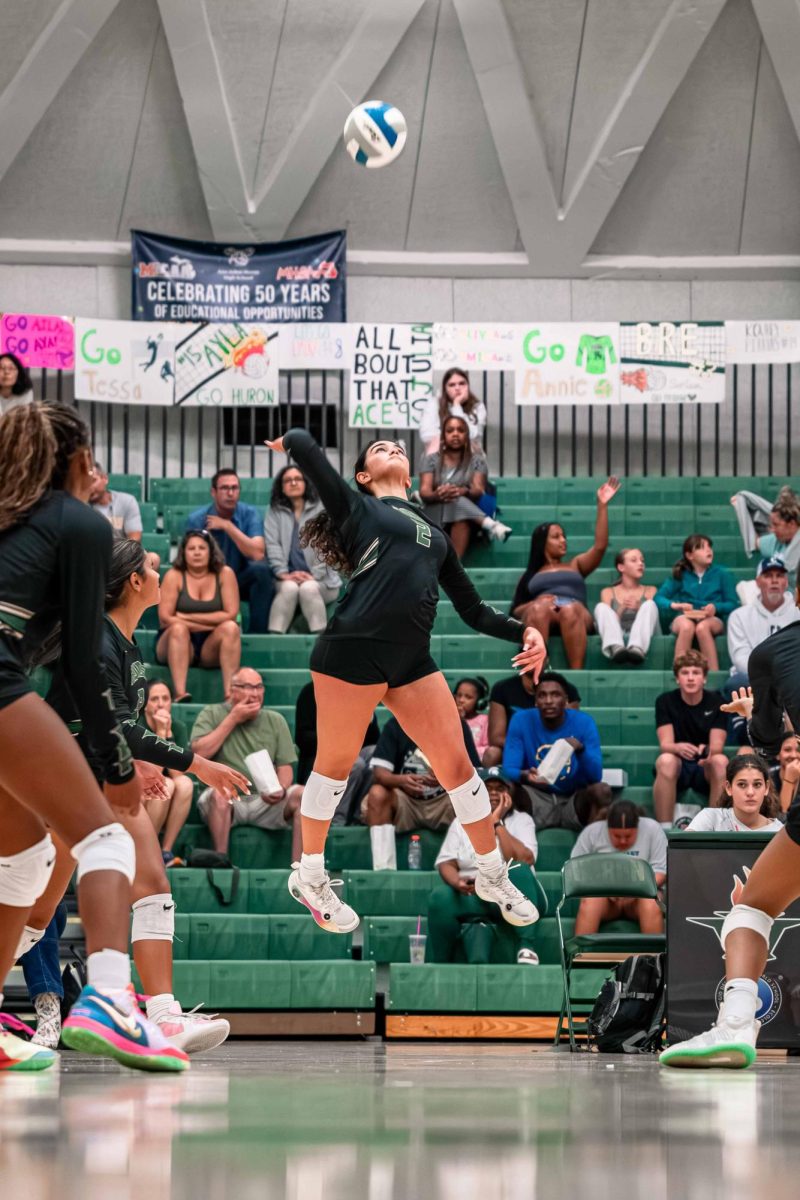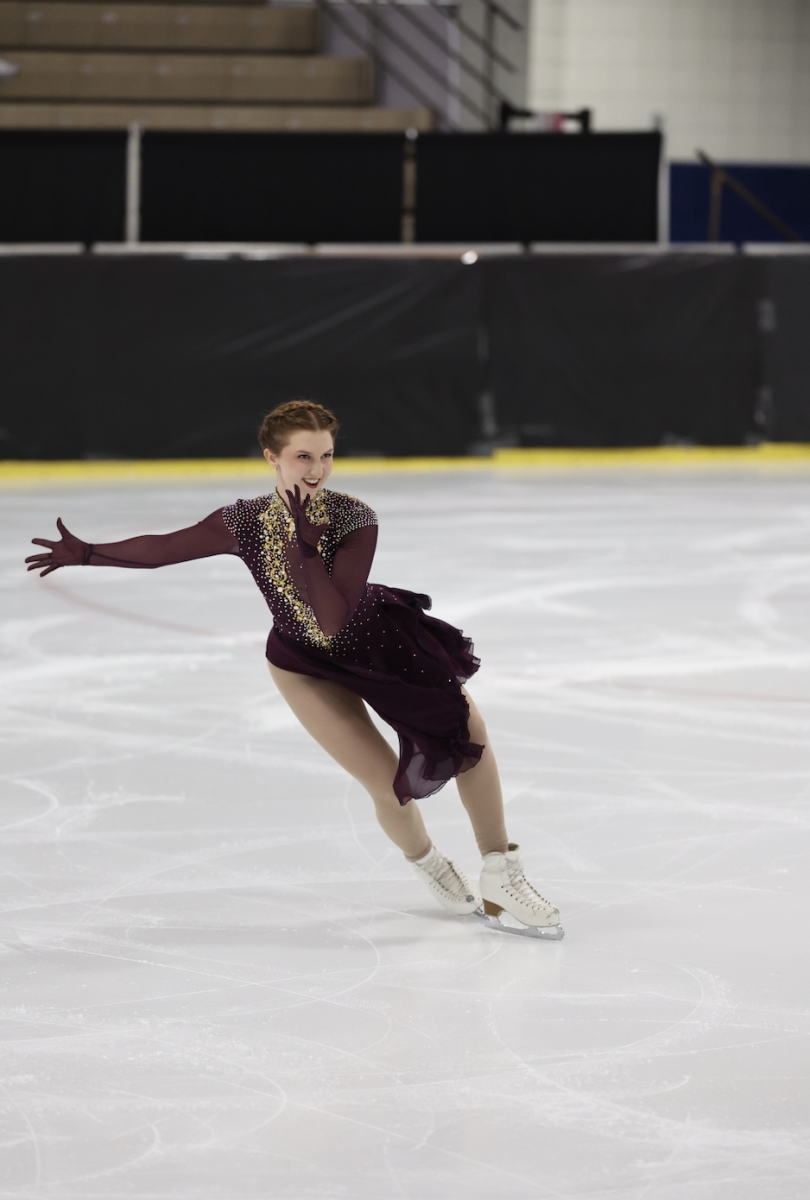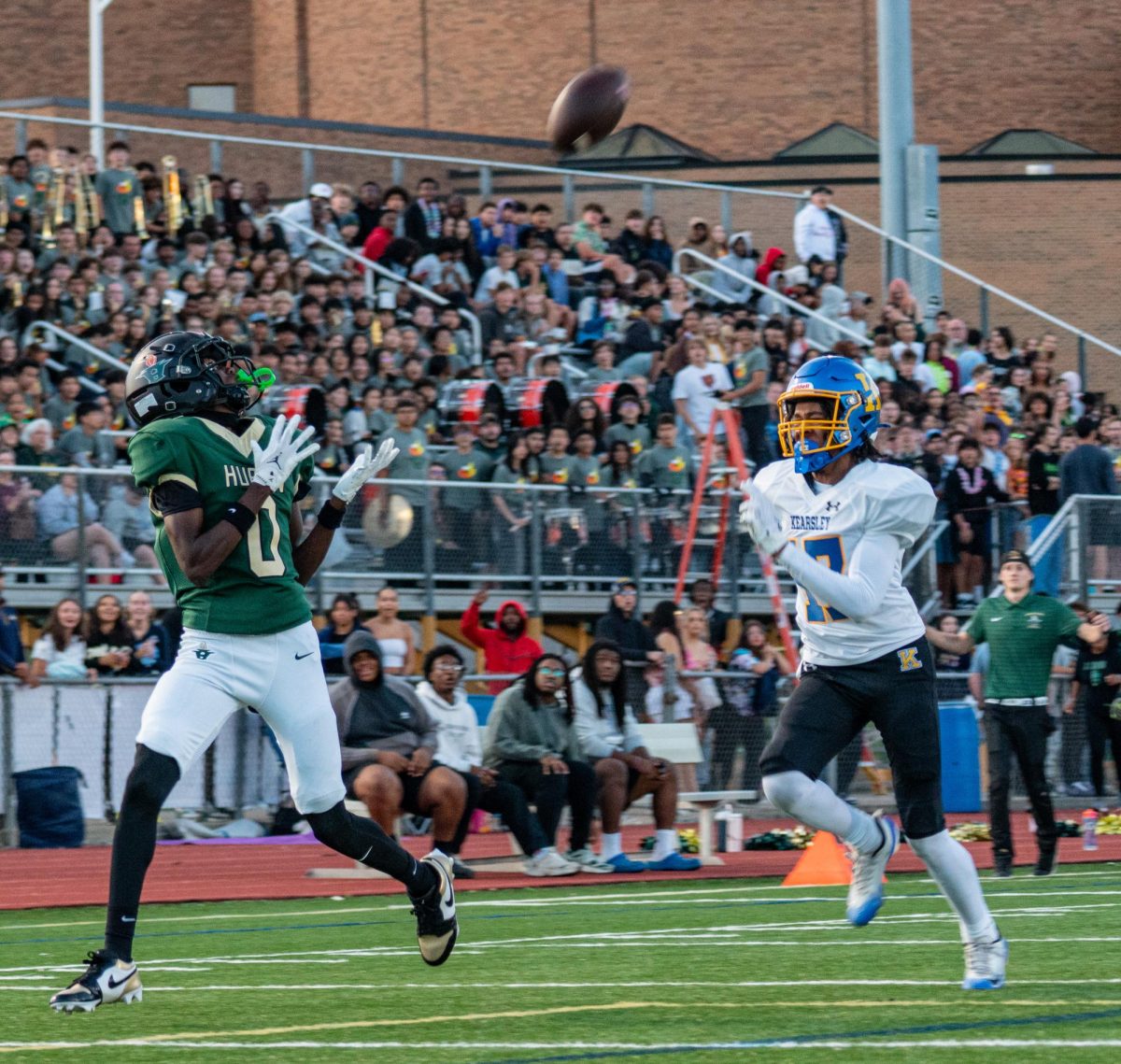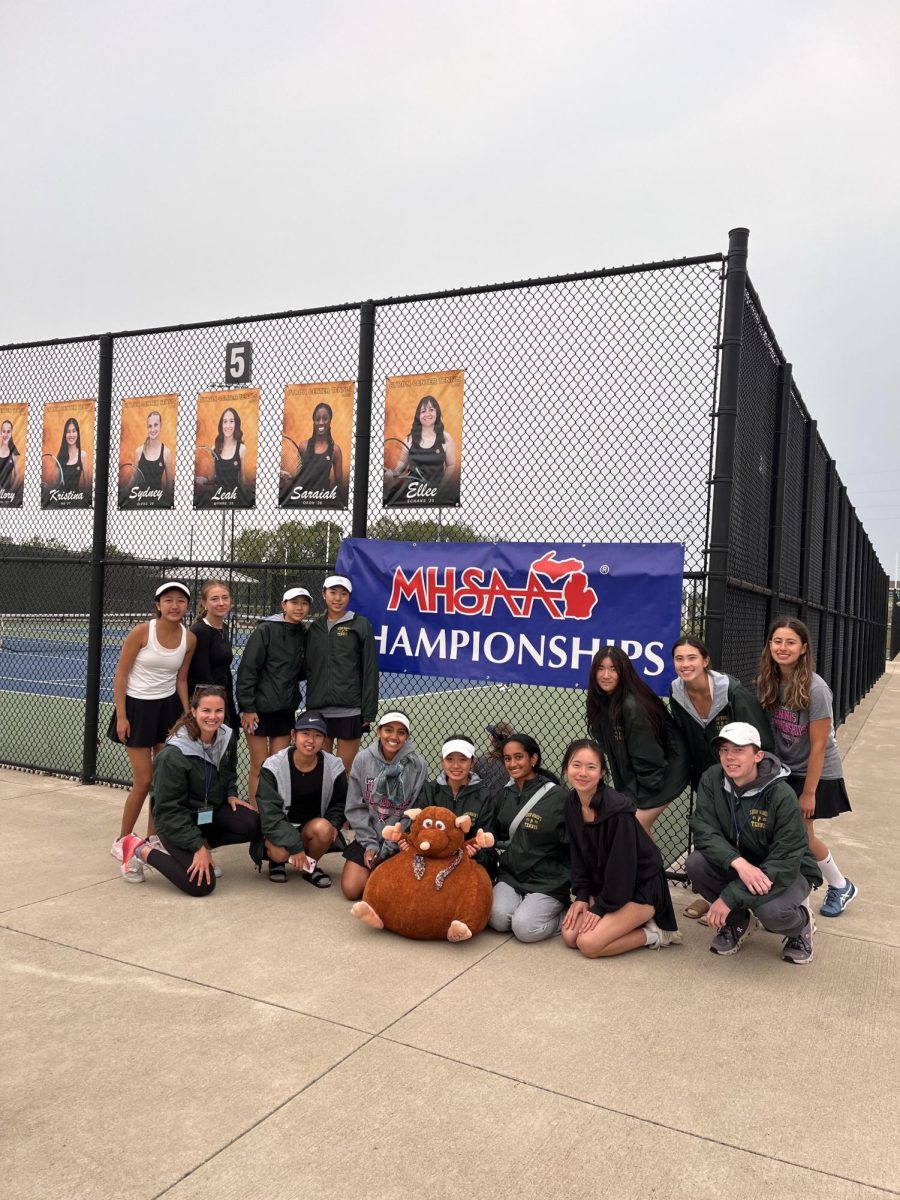Interviewer: Kiki Choi
Interviewee: Srinithya Chiravuri (12th grade)
Question 1: Have you been in crew since your freshman year?
Answer: No, I’ve been doing it since sophomore year.
Question 2: Who do you count on the most to help you through the season? Who helps you to improve?
Answer: I definitely rely on my head coach, Coach MaKayla. She’s in charge of all of our varsity athletes, specifically the varsity women’s team. While we’re rowing, she’ll be next to us in her launch boat, which rides alongside us while we row. She’ll give you feedback in the minute, as well as when we get off the water. She’ll give you personal, individualized feedback to help you get better. I rely on her a lot because she sets up all of our lineups for what we’re rowing and helps us to improve throughout the season, in a very nice linear fashion, so we get better over time.
Question 3: How do you begin to get your energy up and psych yourself up before a regatta?
Answer: We do a boat talk, which is basically — we go through the motions of a race, we’ll talk together, we’ll talk to the coxswain, who’s going to be talking to us throughout the race, and make a whole plan. And then right before that, we’ll do a team huddle for our boat, we’ll do a cheer, it’s like “Who wants the cheese? Rats, rats, rats.” But you have to scream it. That’ll always be what we send ourselves off with before a race. And then we get in our boat and we go race.
Question 4: Is there a specific position in the boat where you sit for every race?
Answer: Yeah! I’ve sat in each of the eight seats, as well as the coxswain seat. However, I usually row the four power seats in the middle because I’m one of the stronger and faster people. So, I row six, five, four, or three seat. Any of those four.
Question 5: Why do you think that many people find crew appealing?
Answer: It’s very rhythmic. It’s a lot more individual than you’d expect it to be, because at the end of the day you’re getting your fitness up so that you yourself can be faster. It’s not so you can — for instance, in lacrosse you need to be able to pass to people and react to what they’re saying. All you have to do for rowing is the same motion at different speeds and different tempos, and I think that’s why it appeals to so many people, because it’s so easy to get into.
[Oh, do you not all row in sync?]
You do all row in sync, but that’s the only thing you really all need to do together. Obviously lining it all up together is hard, but the less of a need to be in communication with people I think is appealing. Because you’re just kinda hamming it on the water. I don’t know how else to describe it.
Question 6: How many regattas do you have in one season?
Answer: Anywhere from four to eight. It really depends on the season. In fall, it’s long distance, and in spring, it’s short distance sprints.
Question 7: How do you balance your academics and home life with your sports?
Answer: I actually really like having a sport because it makes me feel pressured to, when I get home, just get right to it, and be really efficient with my time. The nights I don’t row, when I have my own time after school, I often procrastinate and push off my stuff until really late, because I’d be like, “I would’ve been at practice, I would’ve been doing this, I could’ve been doing this.” But with rowing, it’s like I get home at 7:30, I have four hours to get everything done before I should get to bed by a reasonable time so I’m fit and ready for the next day. So I need to be super efficient with my time. It’s made me really good at getting all of my work done and my work done pretty well in a short amount of time.




